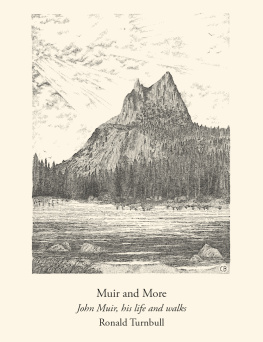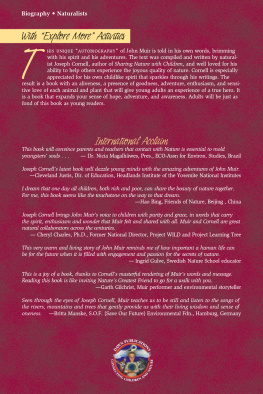LETTERS TO A FRIEND
Table of Contents
"The Hollow," January 21, 1866.
Your last, written in the delicious quiet of a Sabbath in the country, has been received and read a good many times. I was interested with the description you draw of your sermon. You speak of such services like one who appreciated and relished them. But although the page of Nature is so replete with divine truth, it is silent concerning the fall of man and the wonders of Redeeming Love. Might she not have been made to speak as clearly and eloquently of these things as she now does of the character and attributes of God? It may be a bad symptom, but I will confess that I take more intense delight from reading the power and goodness of God from "the things which are made" than from the Bible. The two books, however, harmonize beautifully, and contain enough of divine truth for the study of all eternity. It is so much easier for us to employ our faculties upon these beautiful tangible forms than to exercise a simple, humble living faith such as you so well describe as enabling us to reach out joyfully into the future to expect what is promised as a thing of to-morrow.
I wish, Mrs. Carr, that I could see your mosses and ferns and lichens. I am sure that you must be happier than anybody else. You have so much less of winter than others; your parlor garden is verdant and in bloom all the year.
I took your hint and procured ten or twelve species of moss all in fruit, also a club-moss, a fern, and some liverworts and lichens. I have also a box of thyme. I would go a long way to see your herbarium, more especially your ferns and mosses. These two are by far the most interesting of all the natural orders to me. The shaded hills and glens of Canada are richly ornamented with these lovely plants. Aspidium spinulosum is common everywhere, so also is A. marginale., A. aculeatum, A. Lonchitis, and A. acrostichoides are also abundant in many places. I found specimens of most of the other aspidiums, but those I have mentioned are more common. Cystopteris bulbifera grows in every arbor-vit shade in company with the beautiful and fragrant Linna borealis. Botrychium lunarioides is a common fern in many parts of Canada. Osmunda regalis is far less common here than in Wisconsin. I found it in only two localities. Six Claytoniana only in one place near the Niagara Falls. The delicate Adiantum trembles upon every hillside. Struthiopteris Germanica grows to a great height in open places in arbor-vit and black ash swamps. Camptosorus rhizophyllus and Scolopendrium officinarum I found in but one place, amid the wet limestone rocks of Owen Sound. There are many species of sedge common here which I do not remember having seen in Wisconsin. Calypso borealis is a lovely plant found in a few places in dark hemlock woods. But this is an endless thing; I may as well stop here.
I have been very busy of late making practical machinery. I like my work exceedingly well, but would prefer inventions which would require some artistic as well as mechanical skill. I invented and put in operation a few days ago an attachment for a self-acting lathe, which has increased its capacity at least one third. We are now using it to turn broom-handles, and as these useful articles may now be made cheaper, and as cleanliness is one of the cardinal virtues, I congratulate myself in having done something like a true philanthropist for the real good of mankind in general. What say you? I have also invented a machine for making rake-teeth, and another for boring for them and driving them, and still another for making the bows, still another used in making the handles, still another for bending them, so that rakes may now be made nearly as fast again. Farmers will be able to produce grain at a lower rate, the poor get more bread to eat. Here is more philanthropy; is it not? I sometimes feel as though I was losing time here, but I am at least receiving my first lessons in practical mechanics, and as one of the firm here is a millwright, and as I am permitted to make as many machines as I please and to remodel those now in use, the school is a pretty good one.
I wish that Allie and Henry B. could come to see me every day, there are no children in our family here, and I miss them very much. They would like to see the machinery, and I could turn wooden balls and tops, rake-bows before being bent would make excellent canes, and if they should need crutches broom-handles and rake-handles would answer. I have not heard from Henry for a long time. I suppose that this evening finds you in your pleasant library amid books and plants and butterflies. Are you really successful in keeping happy, sportive "winged blossoms" in such weather as this?
One of the finest snowstorms is raging now; the roaring wind thick with snow rushes cruelly through the desolate trees. Our rapid stream that so short a time ago shone and twinkled in the hazy air bearing away the nuts and painted leaves of autumn is now making a doleful noise as it gropes its way doubtfully and sulkily amid heaps of snow and broken ice.
The weather here is unusually cold. How do matters stand at the University? Can it be that the Doctor is really going to become practical farmer? He will have time to compose excellent lectures while following the plow and harrow or when shearing his sheep.
I thank you for your long, good letter. Those who are in a lonely place and far from home know how to appreciate a friendly letter. Remember me to the Doctor and to all my friends and believe me
Yours with gratitude,
John Muir .
[1866 or 1867.]
[Beginning of letter missing.]
I have not before sent these feelings and thoughts to anybody, but I know that I am speaking to one who by long and deep communion with Nature understands them, and can tell me what is true or false and unworthy in my experiences.
The ease with which you have read my mind from hints taken from letters to my child friends gives me confidence to write.
Thank you for the compliment of the great picture-frame. That is at least one invention that I should not have discoveredbut the picture is but an insect, an animalcule. I have stood by a majestic pine, witnessing its high branches waving "in sign of worship" or in converse with the spirit of the storms of autumn, till I forgot my very existence, and thought myself unworthy to be made a leaf of such a tree.

















